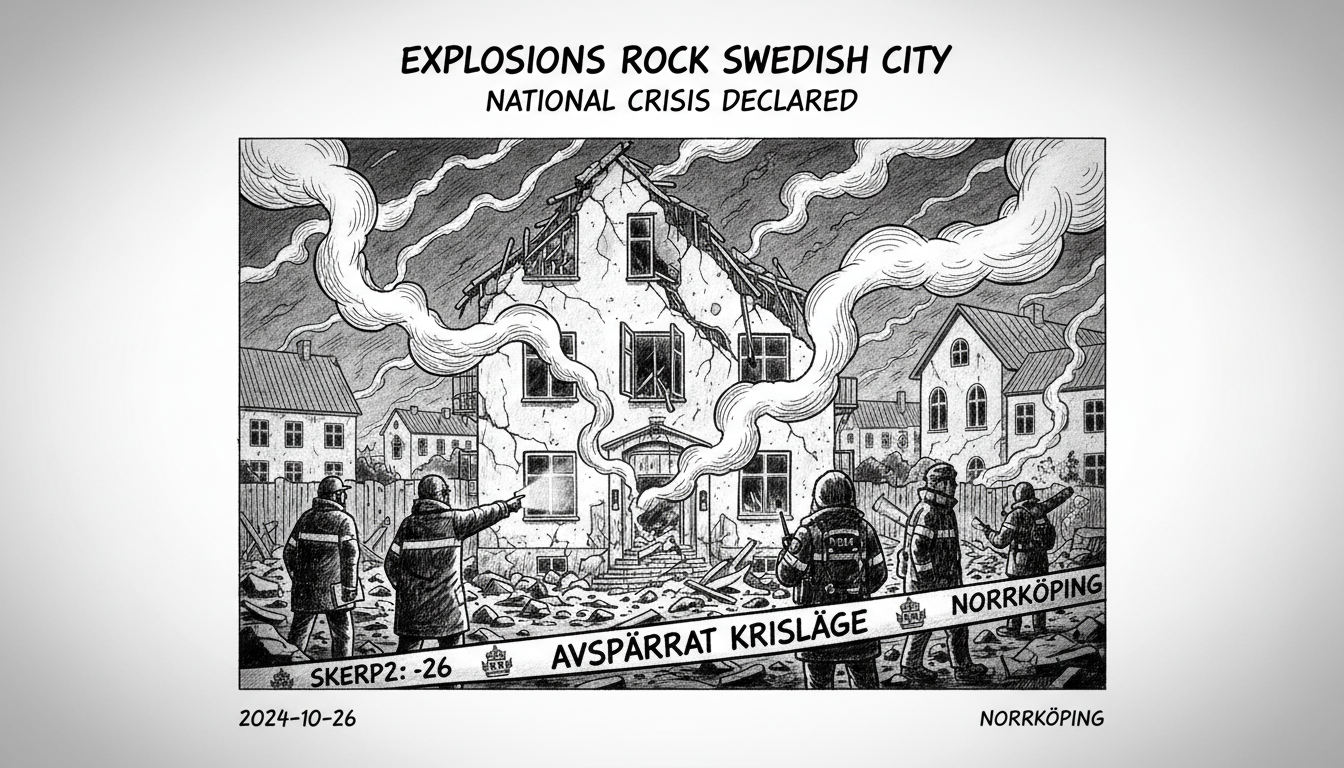Early Sunday morning, two powerful explosions shook the Swedish city of Norrköping. The first blast targeted an apartment building entrance in the city's southern district. Authorities immediately declared a national crisis situation as emergency services rushed to secure the area. These explosions represent the latest in a troubling pattern of violence affecting Swedish urban centers.
Residents described hearing thunderous noises that rattled windows across multiple neighborhoods. The targeted apartment building suffered substantial damage to its entrance and surrounding structure. Police cordoned off several blocks while bomb technicians conducted security sweeps. No injuries were immediately reported, but the psychological impact on local residents remains considerable.
Norrköping, located in eastern Sweden, has faced similar security challenges in recent years. The city joins other Swedish municipalities grappling with organized crime and explosive violence. This incident marks at least the third major explosion in Swedish urban areas this year. Local community leaders expressed deep concern about public safety deterioration.
Sweden's approach to public security continues to evolve amid these challenges. The national crisis declaration triggers coordinated response protocols across multiple agencies. Police spokesperson emphasized the seriousness of the situation during a press briefing. They confirmed investigators were pursuing multiple leads regarding potential suspects.
These explosions occur against a backdrop of ongoing debates about Sweden's integration policies and urban security strategies. Municipal social centers in affected areas often serve as first responders to community trauma. The incident will likely renew discussions about resource allocation for crime prevention and neighborhood safety programs.
International observers closely monitor Sweden's handling of such security incidents. The country's welfare system traditionally emphasizes social cohesion and public safety. Recent events test these foundational principles. Community organizations now face the dual challenge of providing immediate support while addressing longer-term prevention needs.
Local officials pledged increased patrols and community engagement in affected neighborhoods. They emphasized collaboration between residents and law enforcement as essential for solving these crimes. The explosions have undoubtedly shaken public confidence, but also strengthened determination to address underlying security issues.
Sweden's experience with urban violence offers lessons for other Nordic nations facing similar challenges. The immediate response demonstrates well-established emergency protocols, while the longer-term solutions require sustained community effort. As investigations continue, residents await both answers and actionable steps toward preventing future incidents.

